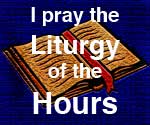Wisdom 7:
- 22
- for Wisdom, the artificer of all, taught me. For in her is a spirit intelligent, holy, unique, Manifold, subtle, agile, clear, unstained, certain, Not baneful, loving the good, keen, unhampered, beneficent,
- 26
- For she is the refulgence of eternal light, the spotless mirror of the power of God, the image of his goodness.
- 3
- who is the refulgence of his glory, the very imprint of his being, and who sustains all things by his mighty word. When he had accomplished purification from sins, he took his seat at the right hand of the Majesty on high,
- 12
- Indeed, the word of God is living and effective, sharper than any two-edged sword, penetrating even between soul and spirit, joints and marrow, and able to discern reflections and thoughts of the heart.
Secondly, notice the parallels here. especially that Paul is talking about the "Word of God (Christ)" in Hebrews and Wisdom is talking about Wisdom, both being a "mirror of God" in some fashion.
Does anyone have a problem with Wisdom being given a feminine pronoun in the book of Wisdom? I don't because that's extremely common in the Old Testament, and I think we would be short sighted to make that a reason to ignore this as a description of Christ in some fashion.
Did I go too far? :)



7 comments:
I personally haven't seen the connection between any of these you've shown [except Wisdom 2 about the Messiah], or the ones in the link you gave. But I have never read Wisdom either.
I find it hard to believe you don't see a connection between "For God formed man to be imperishable, the image of his own nature he made him......disturbance of good men, neglect of gratitude, besmirching of souls, unnatural lust, disorder in marriage, adultery and shamelessness, for the worship of infamous idols is the reason and source and extremity of all evil" (Wisdom) and "they exchanged the glory of the immortal God for images representing both mortal man, birds, beasts, and snakes. In consequence, God delivered them up in their lusts to unclean practices, they engaged in the mutual degredation of their bodies, these men who exchanged teh truth of God for a lie and worshiped and served the creature rather than the Creator - blessed by God forever - God therefor delivered them up to disgraceful passions. Their women exchanged natural intercourse fo unnatural, and men gave up natural intercourse with women and burned with lust for one another. Men did shameful things with men, and thus received in their own persons the penalty for their perversity."
I can't understand how you don't see a connection there, both discussing idolatry as the roots of shameful sin. All those chapters in context deliver even more with each other, but that's just a small snippet. Are you sure you read the passages I linked together?
"I can't understand how you don't see a connection there, both discussing idolatry as the roots of shameful sin."
Isn't that the point of the whole Bible? I don't know, man. I can see where you're coming from, but just because it talks about the same thing doesn't mean there's a relation. But again, I haven't read Wisdom. I still got, like, a hundred pages to go on your book right now :-)
I guess we'll just have to agree to disagree here.
All the books of the bible are related. Everything in the Old Testament, including the book of Wisdom, points toward Christ. Everything in the New Testament is the fullfilment in Christ of the Old Testament.
The book of Wisdom was included in the scriptures that Christ and the early church used. The Jews later removed it from their cannon, as well as a few other Apocraphal books, but the Christians did not. The Jews still used these books for teaching however.
Perhaps now that Joseph is reading books such as Wisdom, which the early church clearly saw as being related to the New Covenant by pointing towards Christ, he is seeing those relationships through different eyes. When we read scriptures through the eyes of the Church (how it was always intended), many things begin to make much more sense.
I remember when the scales started to fall from my eyes and I started making connection after connection. Far too many to even count. Just a few...
*Adam and Eve, created perfect but fall due to sin -- Mary and Jesus, created perfect to "undue" what Adam and Eve did (by the way, the early Church refers to Mary as the "New Eve" -- interesting).
*The flood washed away sin -- baptism in Christ washes away sin.
*Crossing through the waters of the Red Sea freed the people of Israel from bodage and death -- the waters of baptism in Christ free us from bondage and death.
*Passover, through the blood of the lamb, saved the people of Israel from bondage and death --through the blood of the Lamb (Christ), saves us from bondage and death.
*The Ark of the Covenant literally housed the "Word of God" (Ten Commandments) -- Mary housed the "Word of God" (literally God Himself in her womb - the early Church also referred to Mary as the Ark of the New Covenant).
Sorry, sometimes I get carried away.
Thanks for this blog site! I really enjoy this kind of stuff!
God bless!
I stumbled here via a few twists and turns. Great site, thanks very much.
Trent ascribes Hebrews to St. Paul, which I tenaciously clung to even when I was enthralled with Reformed Presbyterianism in my time away from the Church. Since you asked.
Fascinating comparisons between Wisdom and the Pauline epistles you mention so far. Please keep digging!
Thanks for the thoughts, Mike. I'm going to try to blog more on this topic in the future. Thanks for the information about Trent too.
Post a Comment